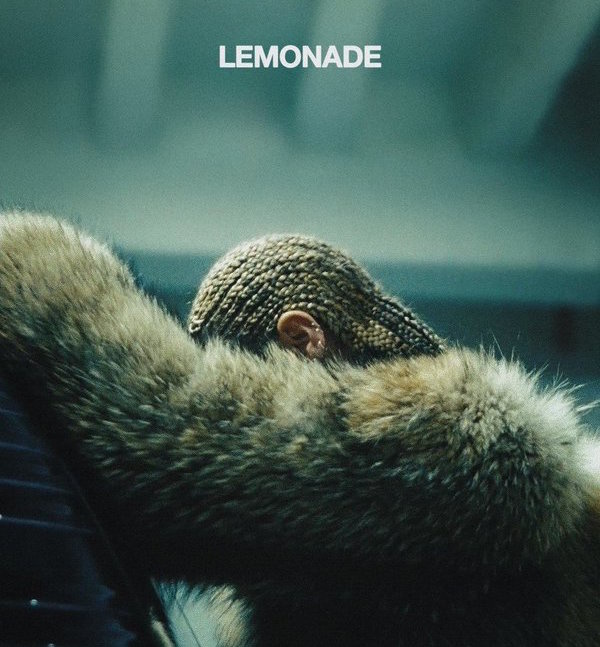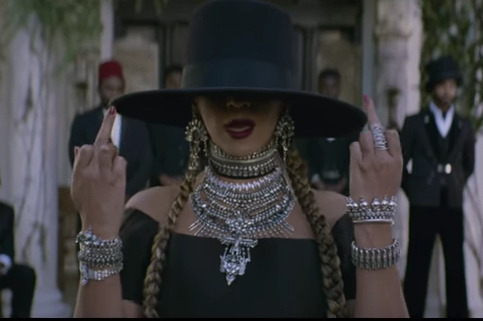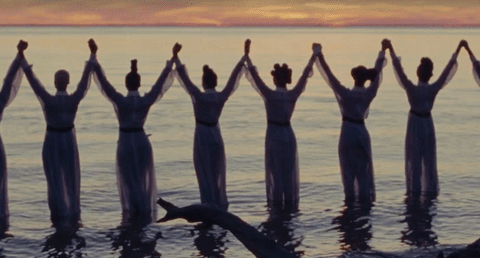Black Women… Beyonce’s Lemonade

I just watched Lemonade, and before I can get into my first reactions to this musical film, I need to get one thing off my chest:

Fuck Jay Z & fuck forgiveness.
Okay… now I can begin.
“Formation” marked a turn to Beyonce’s image and career. As she fearlessly proclaimed and reclaimed her Blackness, and stood up for the dignity of Black women and Black lives, she carved a new place for herself as an artist.
Two months later, she brings us Lemonade. A film. A musical. An album. An invitation into Beyonce’s most vulnerable self, and a love letter to Black women’s past, present and future, it’s both heartbreaking and beautiful. Visually, it’s breathtaking, lyrically it poetically justifies Beyonce as an artist who’s untouchable and constantly redefining herself. Lemonade transitions Beyonce from a sexy pop icon, to a deeply refined artist.
Before yesterday, we didn’t know what Lemonade was going to be. I don’t think any of us were prepared to have Jay Z’s infidelity confirmed and detailed in this visual album. Lemonade reveals the darker side to the Carter’s marriage. A marriage that has always been posed as sexy and powerful has been uncovered as deeply flawed, and, quite frankly, trope-ish . Even Beyonce, with all of her beauty and significance, hasn’t been able to escape the tradition of men stepping out on their wives over and over again. Beyonce’s response to her pain is raw, complicated, and whether or not I approve of her “final warning,” it’s honest.

But is this solely an album about Beyonce and Jay Z’s less than perfect marriage? It’s easy to get lost in the devastating details Beyonce lays out for us. Comparing J to her daddy, recalling the various women she’s seen in her hallways, along with the sleepless nights waiting for him to come home or return her phone calls, we feel sad for Beyonce. Not because her vulnerabilities have exposed her weaknesses, but because they reveal something we’ve never truly seen from her: human pain.

In the song, “Anger,” we hear Malcolm X summing up the reality of Black women:
The most disrespected person in America is the black woman.
The most unprotected person in America is the black woman.
The most neglected person in America is the black woman.
While these powerful words most certainly can be directed to Jay Z’s treatment of Beyonce, it doesn’t stop there. Later in the album/film, we also see the Black mothers who have been disrespected by our judicial system. In “Resurrection,” women hold photos of Black men who have died. Sybrina Fulton, mother of Trayvon Martin, Gwenn Carr, mother of Eric Garner, and Lezley McSpadden, mother of Michael Brown, are shown holding photographs of their murdered sons. Their presence in the film is significant, because it brings to light the Black women who have often been forgotten and silenced in the midst of the Black Lives Matter Movement: the Black mothers.
In the forefront of infidelity, shameless behavior and the systemic mistreatment of Black women, we see the other women. Not the women J’s been creeping with, and not only the women who’ve been mistreated, but the women standing next to, behind, and before Beyonce. Black women– in all of our pretty shades of brown and beige– stand, sit, dance together.They hold hands with each other. They look out for each other. They hold each other. These women are from our past, these women are from our now, these women are our future. I find these women to be the lemonade made from the lemons of our realities.
